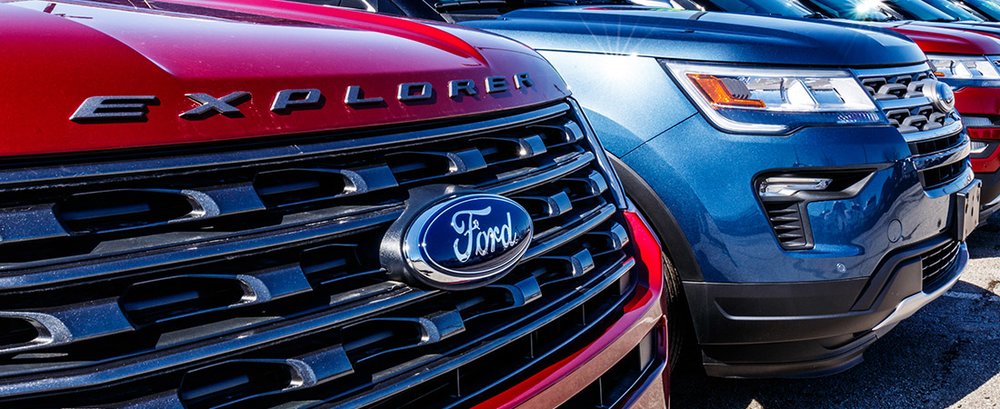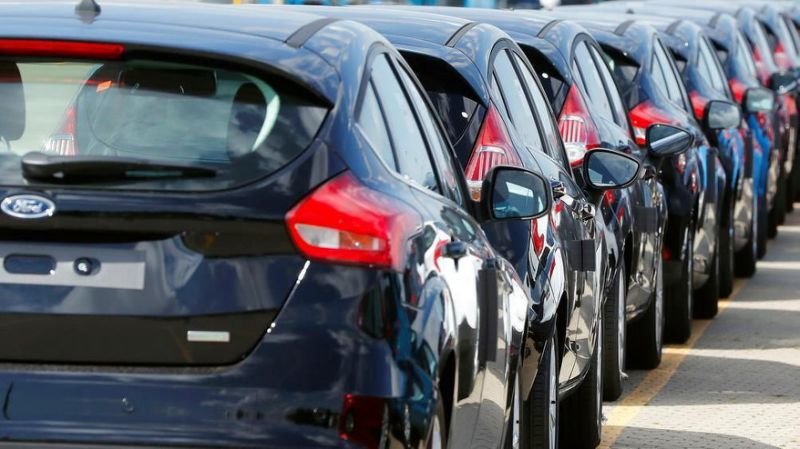Automakers are taking a hard hit from the ongoing trade war between Beijing and Washington. Ford became the latest company to get slammed by the slowing Chinese economy after its sales took a nosedive last month.
Plummeting Auto Sales
The company released its earnings report on Friday which showed that its auto sales plummeted 43 per cent in China for the month of September in comparison to last year. The data also revealed that sales were down 30 per cent in 2018 when compared to the first three quarters of 2017.

The decline in sales was seen across all of Ford’s partnerships in China. Sales for Changan Ford Automobile dropped 55 per cent in September compared to the same period in 2017, Jiangling Motors Corporation was down 15 per cent and sales for imported Ford vehicles saw a 16 per cent decline during the month. The year-on-year growth figures show that Ford imports are down 15 per cent so far in 2018.
Lincoln was the only brand under Ford to see a positive 1 per cent growth in September sales and 4 per cent gain in the first nine months of 2018. The drop in Ford’s sales, while more extreme than other competitors, is in line with the recent slowdown in the Chinese auto industry.
The sales have taken a steep tumble during the month of September. According to data from the China Association of Automobile Manufacturers, China saw the largest decrease in the past seven years, with auto sales dropping 11.6 per cent in September compared to the same period, 2017.
Possible Explanations for Slowdown
Experts are coming up with several possible explanations for the drop in Ford’s sales and the collapse of Chinese auto market at a whole. One of the biggest reasons behind the slowdown is the weakening Chinese economy and dismal GDP growth, a reflection of low investment and business activity in the country.
The second major problem is the ongoing trade conflict between China and U.S. which has taken a toll on almost every aspect of the country’s economy including international trade and Gross Domestic Product growth. According to International Monetary Fund, China isn’t the only casualty of the escalating trade war. The world economy is also expected to slow down to 0.2 per cent from its current 3.7 per cent growth.

Ford’s CEO, Jim Hackett, said that car manufacturing has become significantly costly after Trump decided to impose more levies on aluminum and steel import
Auto companies in both countries are now subjected to heavy tariffs, making it harder for Chinese car makers to maintain high profit margins from car exports to the U.S. and vice versa. Ford has issued several warnings in the past that increasing tariffs could increase the economic burden on both the consumers and the company. The automaker has to slash its profit forecast for the third quarter due to depressing sales and trade uncertainty.
Tough Competition Ahead
It has been a tough year for the Chinese auto industry so far and things aren’t expected to improve any time in the near future. But Ford’s CEO, Jim Hackett, fears bigger problems than just the import tariffs. He said that car manufacturing has become significantly costly after Trump decided to impose more levies on aluminum and steel import.
Add all those ingredients, and you end up with recipe for a sales disaster. Hackett said his company will have to suffer a $1 billion loss just from the steel and aluminum tariffs in the years 2018 and 2019.
Ford also had to make some difficult trade decisions to offset its losses from growing tariffs. It recently announced that it won’t be selling China-made SUVs in the US because of smaller profit margins on cheaper mass-market cars.
Ford also faces intense competition from a slew of new carmakers emerging in China’s auto industry, which means that consumers have plenty of new, innovative products to choose from at varying prices. Moreover, global automakers like GM have managed to claim a significant portion of the Chinese auto industry with cars ranging from high-end to low-end, to meet the needs of different customers.
The problem with Ford is that it hasn’t been able to keep up with innovation and changing consumer preferences like other competitors have. Despite plummeting sales, the automaker says that it isn’t ready to give up on China yet and will be coming out with new products of its own to win back the customers.










